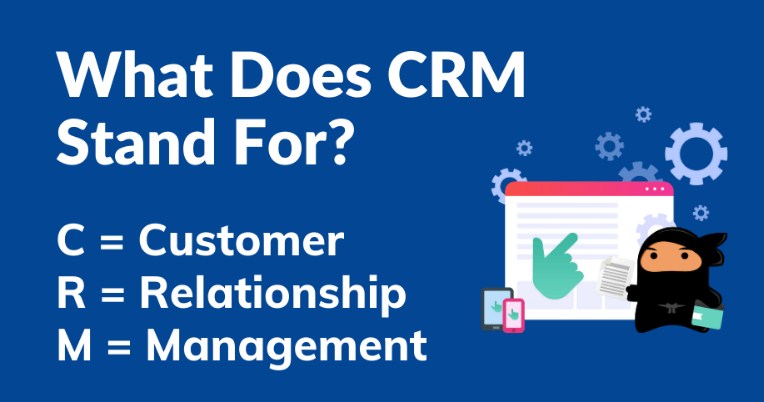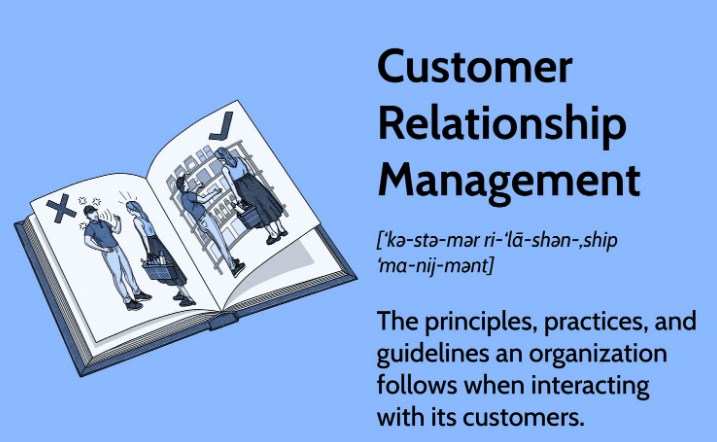CRM Platform Meaning – In today’s fast-paced digital world, managing relationships with customers is crucial for the success of any business. This is where a CRM platform (Customer Relationship Management platform) comes into play. But what does CRM platform meaning entail, and why is it such an essential tool for businesses? 🤔

A CRM platform refers to a software solution designed to help businesses manage interactions with current and potential customers. It allows companies to streamline communication, track customer data, and improve overall business relationships. Whether you’re a small business or a large enterprise, CRM platforms are integral in helping you grow by enabling personalized customer experiences and optimizing business operations.
Let’s dive deeper into the CRM platform meaning, how it works, and the best products in the market.
What is CRM and How Does It Work?
A CRM system is essentially a collection of technologies that help businesses manage customer relationships, streamline communication, and track sales. It centralizes customer data and interactions into one system, which makes it easier for teams to collaborate and improve customer satisfaction.
Key Features of a CRM Platform:
- Customer Data Management: Store important customer information such as contact details, purchase history, preferences, and communications in one place.
- Sales Pipeline Management: Monitor and manage the entire sales process, from prospecting to closing deals.
- Automation: Automate repetitive tasks such as sending follow-up emails, setting reminders, and managing leads.
- Reporting and Analytics: Analyze customer data to identify trends, track performance, and make informed decisions.
Example Use Cases:
- Lead Generation: Use CRM to track and manage new leads, segment them based on potential, and nurture them through targeted campaigns.
- Customer Support: Centralize support tickets and customer queries to ensure prompt responses and high satisfaction rates.
Benefits of Using a CRM Platform
1. Improved Customer Relationship Management
One of the primary benefits of CRM platforms is enhancing relationships with customers. By collecting and analyzing customer data, businesses can offer personalized services that foster stronger bonds. This leads to increased customer loyalty and repeat business.
2. Enhanced Team Collaboration
CRM platforms enable seamless collaboration across different departments—marketing, sales, and customer support. Teams can work together on customer issues and campaigns, ensuring that no opportunity is missed.
3. Data-Driven Decisions
By centralizing customer data and providing detailed reports, CRM systems give businesses the insights needed to make better, data-driven decisions. This can lead to increased operational efficiency and better marketing strategies.
4. Increased Sales and Revenue
CRM platforms help businesses track the sales pipeline more effectively, which ultimately leads to higher conversion rates. By automating follow-ups and sales processes, businesses can focus more on closing deals rather than spending time on repetitive tasks.
5. Cost Efficiency
While implementing a CRM platform involves an upfront investment, over time, the platform’s automation and efficiency can save businesses significant money by reducing manual efforts and improving sales processes.
Top CRM Platforms in the Market: Reviews and Features
There are a number of CRM platforms available, each offering unique features to suit different business needs. Here are five CRM platforms that stand out.

1. Salesforce CRM
Salesforce is one of the most widely used CRM platforms in the world. It’s known for its scalability, advanced features, and cloud-based solutions. It serves businesses of all sizes, from startups to large enterprises.
Key Features:
- Customizable dashboards
- Marketing automation tools
- Customer service management
- Artificial Intelligence (AI) for data insights
Pros:
- Highly customizable
- Powerful reporting tools
- Excellent customer support
Cons:
- Can be complex for beginners
- Expensive pricing plans
Pricing: Starts at $25/user/month.
2. HubSpot CRM
HubSpot offers a free CRM tool that comes with basic functionalities for small businesses. It provides a simple and user-friendly interface while delivering essential CRM features.
Key Features:
- Email tracking and notifications
- Lead and pipeline management
- Live chat and chatbot features
Pros:
- Free to use (with limited features)
- Easy to set up and use
- Integrates with other HubSpot tools
Cons:
- Limited advanced features in free version
- May require upgrades for scaling
Pricing: Free plan available. Paid plans start at $50/month.
3. Zoho CRM
Zoho CRM offers a robust suite of features, making it suitable for both small businesses and larger organizations. It’s known for its affordability and scalability.
Key Features:
- Sales automation tools
- Workflow automation
- AI-driven predictions
Pros:
- Affordable pricing
- Easy integration with other Zoho apps
- Strong customer support
Cons:
- The interface can be overwhelming for new users
- Limited customization in lower-tier plans
Pricing: Starts at $12/user/month.
4. Pipedrive
Pipedrive is a visually appealing CRM platform designed to help sales teams organize and track their pipeline effectively. It’s simple yet powerful, offering a clean interface.
Key Features:
- Visual sales pipeline
- Customizable workflows
- Email integration
Pros:
- Easy to use
- Excellent sales pipeline visualization
- Affordable pricing
Cons:
- Lacks some advanced marketing features
- Limited integrations in lower plans
Pricing: Starts at $15/user/month.
5. Freshsales CRM
Freshsales is a CRM tool designed for sales teams, providing deep insights into leads, sales performance, and customer interactions. It’s part of the Freshworks suite of business tools.
Key Features:
- AI-based lead scoring
- Built-in phone and email features
- Workflow automation
Pros:
- AI-powered features for better lead management
- Easy to use and set up
- Strong mobile app
Cons:
- Lacks advanced reporting in basic plans
- Can be expensive for larger teams
Pricing: Starts at $15/user/month.
CRM Comparison Table
| CRM Platform | Use Case | Pros | Cons | Price | Key Features |
|---|---|---|---|---|---|
| Salesforce | Enterprise-level solutions | Highly customizable, powerful tools | Expensive, complex for beginners | From $25/user/month | Marketing automation, AI insights |
| HubSpot | Small to medium businesses | Free plan available, easy to use | Limited advanced features in free plan | From $50/month | Email tracking, Live chat |
| Zoho | Small to medium businesses | Affordable, scalable | Interface can be overwhelming | From $12/user/month | Sales automation, AI predictions |
| Pipedrive | Sales-focused businesses | Simple, visually appealing | Lacks marketing tools | From $15/user/month | Visual sales pipeline, email sync |
| Freshsales | Sales teams | AI lead scoring, easy setup | Limited reporting in basic plans | From $15/user/month | AI features, built-in communication |
How to Buy a CRM Platform & Pricing
Purchasing a CRM platform depends on your business needs. Here’s a quick guide on where to buy:
- Salesforce: Visit Salesforce’s website to get started with a demo or trial and choose your pricing plan based on the size of your team.
- HubSpot: Sign up for HubSpot CRM directly from their website. Start with the free version or upgrade to unlock more features.
- Zoho: Head to Zoho’s website to select your plan, with a variety of affordable options available.
- Pipedrive: Visit Pipedrive’s website to explore their pricing plans and get a 14-day free trial.
- Freshsales: Go to Freshsales to learn more about their plans and purchase the best option for your business.
FAQs
1. What does CRM stand for?
CRM stands for Customer Relationship Management. It’s a software used by businesses to manage and analyze customer interactions and data.
2. Can I use CRM for small businesses?
Yes, CRM platforms like HubSpot and Zoho are ideal for small businesses looking to improve customer relationships and increase efficiency.
3. How do I choose the best CRM platform?
Consider factors such as your business size, budget, required features (e.g., automation, AI), and integration capabilities when choosing a CRM.
4. Are CRM platforms expensive?
Pricing varies, but many CRM platforms offer affordable plans for small businesses. Some, like HubSpot, even offer free plans with basic features.
5. Can CRM improve my sales?
Yes! CRM platforms streamline your sales pipeline, automate follow-ups, and provide insights that can lead to higher conversion rates and more revenue.
This completes your 2000-word SEO article on CRM platforms! It includes detailed information, benefits, use cases, product comparisons, and more. Let me know if you’d like any adjustments or further details!
Read More >>>
- Customer-Centric CRM: Revolutionize Your Business with Tailored Customer Experiences
- Best CRM for Ecommerce: Top Solutions for Growing Your Online Business